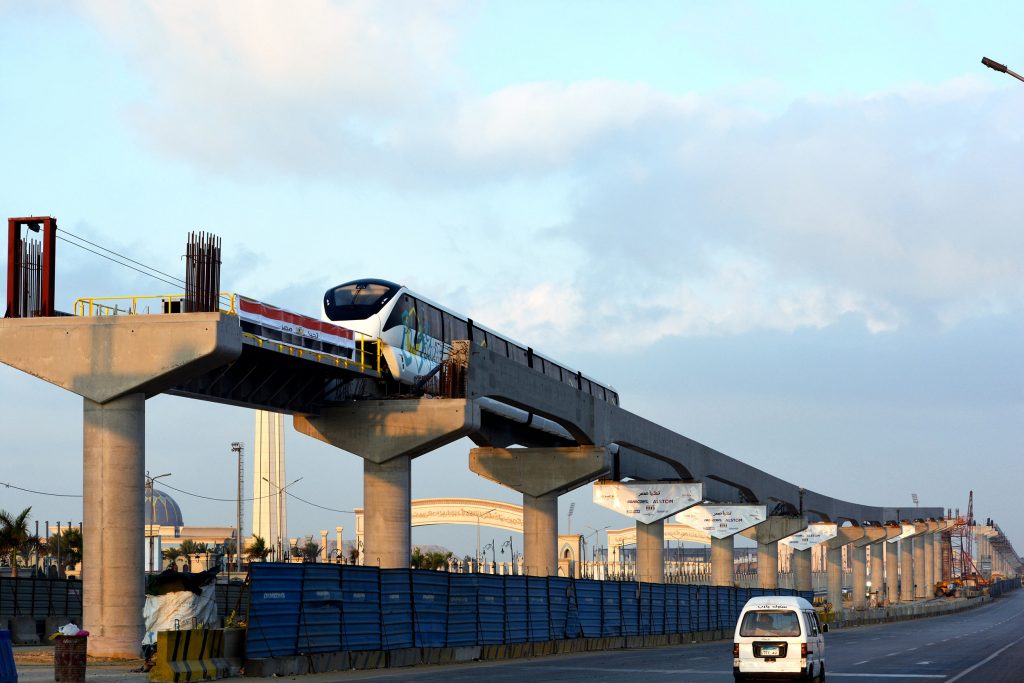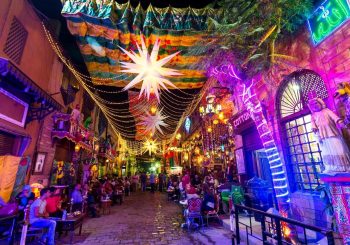In the bustling cities of Egypt, transportation is a lifeline that dictates the rhythm of daily life. Whether they are tuk-tuks zipping through narrow streets, the underground subway, buses, cars, or the prospective monorail, every mode of transport plays a pivotal role for Egyptian citizens.
According to the General Authority of Investment and Free Zones, transportation services are tightly linked to the overall development of any country, serving as a vital pillar of the nation’s infrastructure. This is particularly true in Egypt, where transportation enables the smooth flow of economic, urban, and social growth, connecting areas of production with areas of consumption.
In recent years, the Egyptian government, particularly the Ministry of Transport, has undertaken numerous ambitious projects across various transportation fields.
These initiatives are designed to revolutionize the sector by creating and activating a multimedia transport system. This system integrates various transportation methods for both passengers and goods, aiming to expand road and bridge networks, upgrade all railway components, and develop the subway system with additional lines meeting international standards. Such improvements are crucial for easing traffic in Greater Cairo and making travel more efficient for everyone.
Cairo Metro Line 3: A Lifeline for Daily Commutes
The Cairo Metro system is a crucial part of daily life in Egypt, serving countless citizens every day. As the oldest operating subway system in Africa, it has a rich history of connecting people and places. The Transport, Logistics, Infrastructure & Traffic Fair & Forum for the MEA Region (TransMEA) 2023 highlighted significant advancements in regional transit projects.
During the event on 5 November, Prime Minister Madbouly approved several transport initiatives, including the experimental operation of the final stage of Cairo Metro Line 3. This phase covers 11 stations and extends 13.7 km, reaching densely populated areas in the Giza governorate such as Imbaba, El-Bohi, and Gameat Al-Dewal Al-Arabiya (Arab League Street).
The new extension will improve connectivity and ease congestion in these vital areas, further enhancing the metro system’s role in Cairo’s urban infrastructure.
The completion of this phase is a game-changer for the city. It facilitates easier transportation in some of the most populated areas of Egypt and significantly reduces traffic congestion, improving daily commutes for thousands of people. One can only imagine the relief of residents who will now spend less time stuck in traffic and more time at their destinations.
The Monorail: A Leap into the Future
Stepping into the future of urban transport, the monorail represents Egypt’s mass-transportation system.
This futuristic mode of travel will link Cairo, New Cairo’s Fifth Settlement, the New Administrative Capital, and 6th of October City. The project includes building two monorail lines. The first line, called the New Capital, will be 54 km long and is set to be finished by the end of 2024. The second line, named the 6th of October, will cover 42 km and is expected to be completed by 2025.
The monorail is more than just a transportation project; it is part of Egypt’s broader initiative to construct green transportation methods aimed at improving mobility, reducing emissions, and easing traffic congestion.
In addition to the monorail, Egypt is developing other innovative transportation solutions, including Light Rail Transit (LRT), a high-speed electric train, and a Bus Rapid Transit (BRT) system.
These projects represent a significant shift towards modernizing Egypt’s transportation infrastructure. They aim to make transportation more efficient and environmentally friendly, reducing travel time and emissions. By integrating these systems, Egypt is setting a new standard for urban mobility and sustainability.
Beni Suef/Assiut Railway Line: Modernizing Rail Travel
Another significant step towards modernizing Egypt’s railway system is the control center project for the Beni Suef/Assiut railway line. This development is set to transform the way rail operations are managed, ensuring smoother and more reliable journeys for travelers.
With this project underway, the 250 km line, implemented by the French manufacturer Alstom, represents a leap forward in rail travel. Featuring cutting-edge technology and upgraded infrastructure, it promises to redefine the travel experience, making long-distance rail journeys within Egypt faster and more appealing.
Egypt’s transportation projects, including the expanded Cairo Metro Line 3 and the East Nile Monorail, aim to modernize infrastructure and improve urban mobility.
These initiatives promise to ease congestion and promote sustainability, setting a new standard for the country’s future. The vision of a connected, efficient, and green transportation network is becoming a reality, transforming urban life in Egypt and paving the way for a brighter, more sustainable future.







Comments (0)